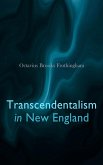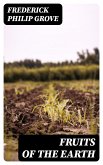In "Some Fruits of Solitude," William Penn presents a profound exploration of personal introspection and societal ethics through a Quaker lens. This collection of reflections and essays, written in a lucid and contemplative style, delves into themes such as the nature of true happiness, the importance of inner peace, and the value of solitude. With a keen philosophical approach, Penn's work resonates with the intellectual currents of the 17th century, particularly reflecting the Puritanical influence and the emerging Enlightenment thought that championed individual moral responsibility and a deeper understanding of the self. Each section is a rich tapestry of insight, inviting readers to ponder their place in the world and the virtues of a well-examined life. William Penn (1644-1718), a prominent Quaker thinker and founder of Pennsylvania, draws from his own experiences and beliefs in crafting this reflective work. His background in religious dissent and commitment to social justice deeply influenced his writings. As a proponent of peace and tolerance, Penn sought to inspire a more harmonious existence, highlighting the need for personal reflection amid the chaotic realities of human life, shaped by his own tumultuous encounters with authority and faith. "Some Fruits of Solitude" is an essential read for anyone seeking spiritual enrichment and philosophical depth. It appeals to those interested in ethical discourse, Quaker philosophy, or the workings of the human conscience. Penn's eloquent prose not only offers timeless wisdom but also serves as a guide for navigating one's inner landscape, making this work a valuable addition to the library of any reflective reader.
Dieser Download kann aus rechtlichen Gründen nur mit Rechnungsadresse in A, B, BG, CY, CZ, D, DK, EW, E, FIN, F, GR, H, IRL, I, LT, L, LR, M, NL, PL, P, R, S, SLO, SK ausgeliefert werden.









